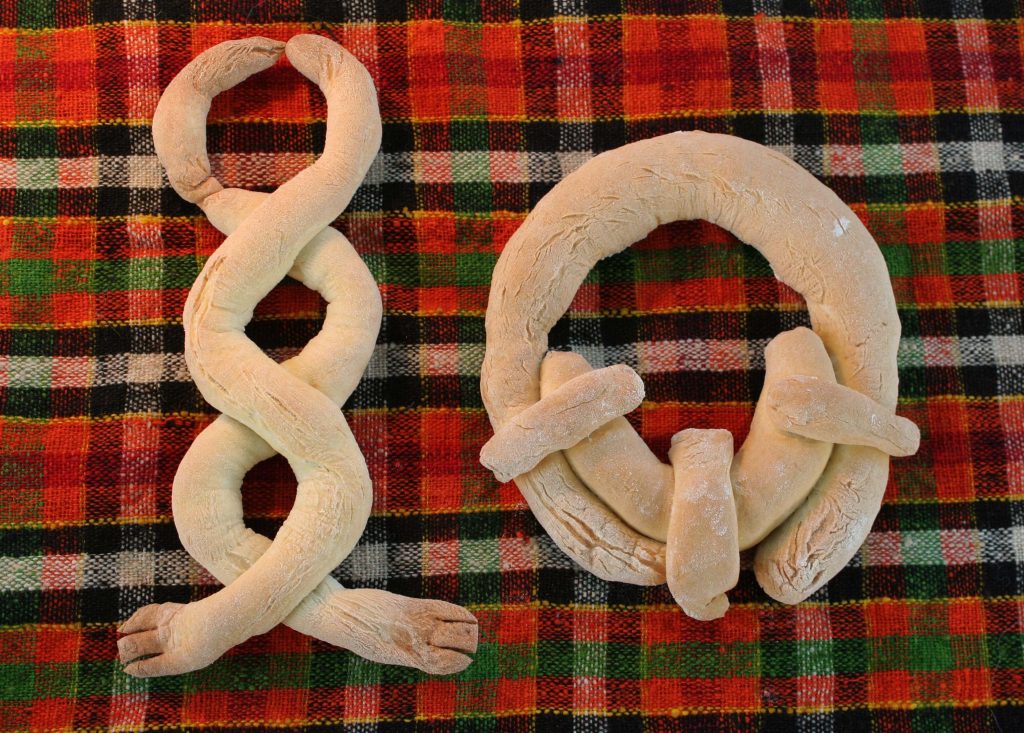That is why the Bulgarian looks at the symbols and signs that the world around him gives him. And there are really many beliefs. Some of them sound archaic, but let's recall some of the Bulgarian traditions.
Today is Ignazhden
The holiday is also called Idinazhden, Young Year, New Day, Young Month, Polaz or Polazovden. As of today, the Sun turns to spring and summer, but is still at its furthest point. Bonfires are lit today, believed to be a form of solar magic. They symbolize the sun disk and help the sun shine brighter.
An important holiday ritual today is the waiting for a polasnik
(the first person to enter the home). If this is a good person, with good thoughts, good health, a generous hand and luck, it is expected to pass them on to the home it enters. The Bulgarian from old times believed in good and bad meeting, in good and bad eyes, in good and bad weather, in which every thought, name, blessing can come true.
I invite you, Lord, to be the first to cross my threshold today... Magnificent prayer for Ignazhden
On Ignazhden, cookies (pretzels) are kneaded for each member of the family.
The first pinch of dough is dried. The old Bulgarians believed that it helps with stomach and heart pains. With the second clip, a cross is made above the door. Bulgarians used to sweep the soot from the chimney on this day and throw it out together with the broom. It was believed that this way there would be no fleas in the summer. They were also poured into the water to carry away all bad things and "go like water" forward in the year.
Whoever left Ignazhden's house should never return empty-handed.
The women distribute loaves around the neighborhood and to neighbors for the health of all domestic animals. Early in the morning, parents measure children or "raise" them by the ears to make them grow faster. Again, with the same purpose, the grandmother or the oldest woman in the home wakes the children while they are sleeping. Pregnant and nulliparous women do not have to work to give birth easily. This is related to the belief that the birth pains of the Mother of God begin from Ignazhden, therefore these days are also called Martyrs' Days.
On Ignazhden, the pig is slaughtered, but the table is lean.
At the festive dinner, the host breaks a ceremonial pita. Whoever has the biggest piece of the pie will be lucky. Sarmi is being prepared. Wheat and corn are boiled together for prosperity. The hostess chooses two walnuts for each member of the family, leaves them in a pot made of earth, to stand until Christmas Eve, when health and luck are divined on them. Nothing should be taken out of the house - especially fire, embers or salt - so that "the blessing does not leave" the home.
Here are more of today's traditions:
Nothing is requested or lent.
Do not get up from the table while eating.
Do not sew or knit.
Don't boil beans to avoid hail.
Do not wash to prevent disease.
It is not good if a child is conceived on Ignazhden.
From St. John's Day to St. John's Day, there is no commemoration of the deceased.
From that day on, no hives are moved, otherwise the bees will flee.
Men do not harness cattle to keep them strong and agile throughout the year.
If on Ignazhden the weather is cloudy, the harvest will be good and there will be abundance in the beehives.
Today determines what the weather will be like in January.
Bulgarian holidays and customs
Read more: 10 invaluable tips from Lili Dimkova - the daughter of folk healer Petar Dimkov

